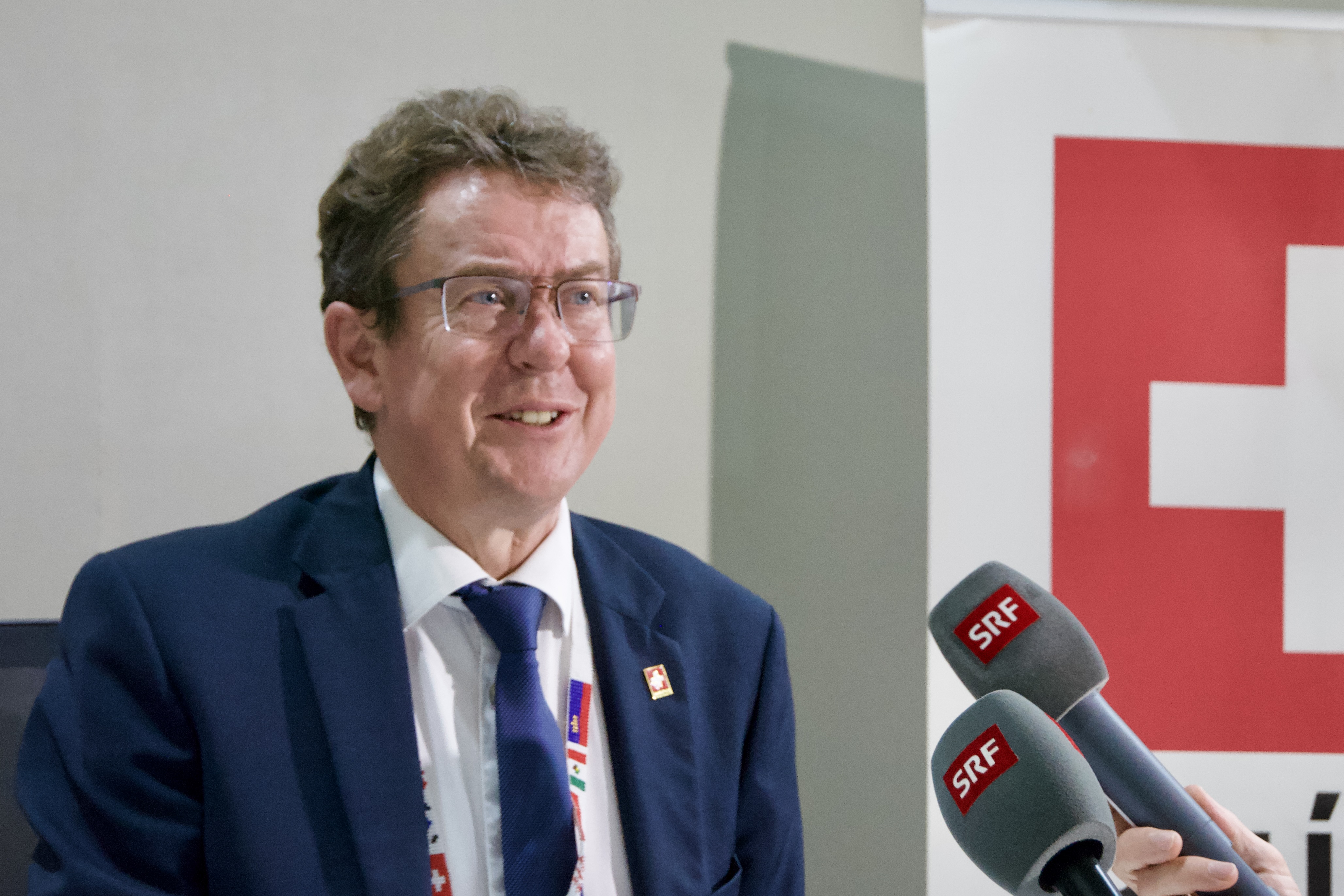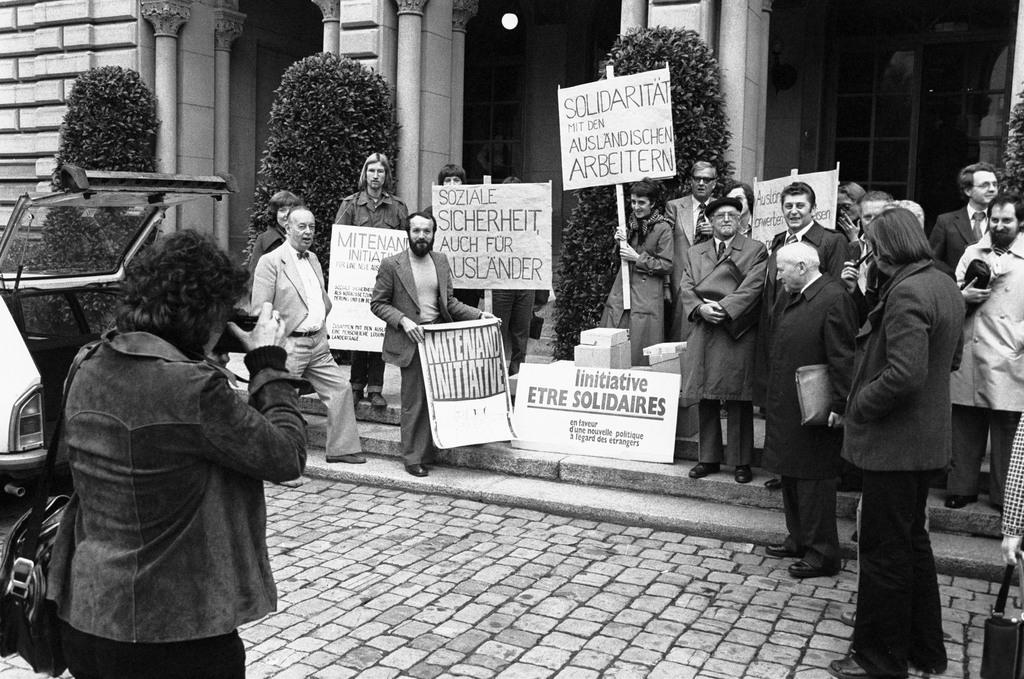
Swiss ambassador defends UN migration pact

Swiss Ambassador Pietro Mona has defended the UN migration pact despite fierce criticism from parliament. He says it will enable small Switzerland to better assert its interests in the future. He also has concerns about the country’s credibility.
The pactExternal link gives Switzerland an additional instrument that will help in negotiations on readmission agreements with countries such as Eritrea, said the ambassador for development, forced displacement and migration in an interview with newspaper BlickExternal link on Monday. Mona was the Swiss delegation leader in the negotiations on the 34-page Global Compact for Migration in New York.
“As a small country, Switzerland relies on international cooperation. The migration pact is the first international document stating that countries are required to cooperate in the return of their citizens. The fact that the country already respects the 23 goals in the agreement should by no means be a hindrance to its participation,” he said.
For Mona, Switzerland’s credibility is at stake. “We cannot ask other states to adhere to something we do not want to commit to.”
The non-binding migration pact, to be officially signed at a conference in Marrakesh, Morocco, on December 10-11, is highly controversial. The United States, Austria, Hungary and Australia have decided to not get involved. Poland could follow suit.
After some hesitation, the Swiss government said last month it would sign the pact while clarifying its position on detaining minors from the age of 15 pending deportation, which Swiss law allows but the migration pact discourages.
+ Swiss government’s position on Global Compact for Migration
Since then, committees in both parliamentary chambers have called for delaying the Swiss signature and giving parliament – and perhaps voters in a referendum – the chance to decide the matter.
Some politicians, especially from the right, complain that the pact could blur the line between legal and illegal migration and undermine countries’ sovereignty.
‘Emotional issue’
“Migration is a very emotional issue, we’re aware of that,” Mona said. “The pact is a result of negotiations among 192 states. It’s understandable that not everyone in parliament agrees with all the elements. But we have given everything to get as good a result as possible.” The pact corresponds to the interests of Switzerland, he insisted.
The text for the Global Compact for Safe, Regular and Orderly MigrationExternal link was approved in July at the UN General Assembly in New York. The pact sets out principles for dealing with refugees and migrants. Twenty-three targets were set, followed by possible measures.
The pact deviates from Swiss law in one point: the detention pending deportation of those under the age of 15. This is legal in Switzerland, but the migration pact recommends it be avoided.

More
The pioneers of a more open migration policy

In compliance with the JTI standards
More: SWI swissinfo.ch certified by the Journalism Trust Initiative



























You can find an overview of ongoing debates with our journalists here . Please join us!
If you want to start a conversation about a topic raised in this article or want to report factual errors, email us at english@swissinfo.ch.